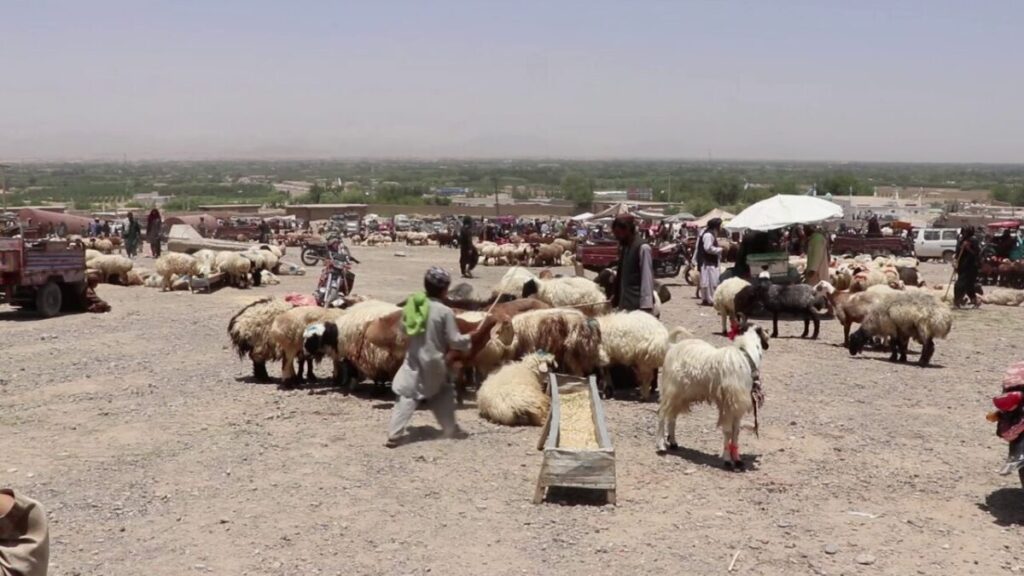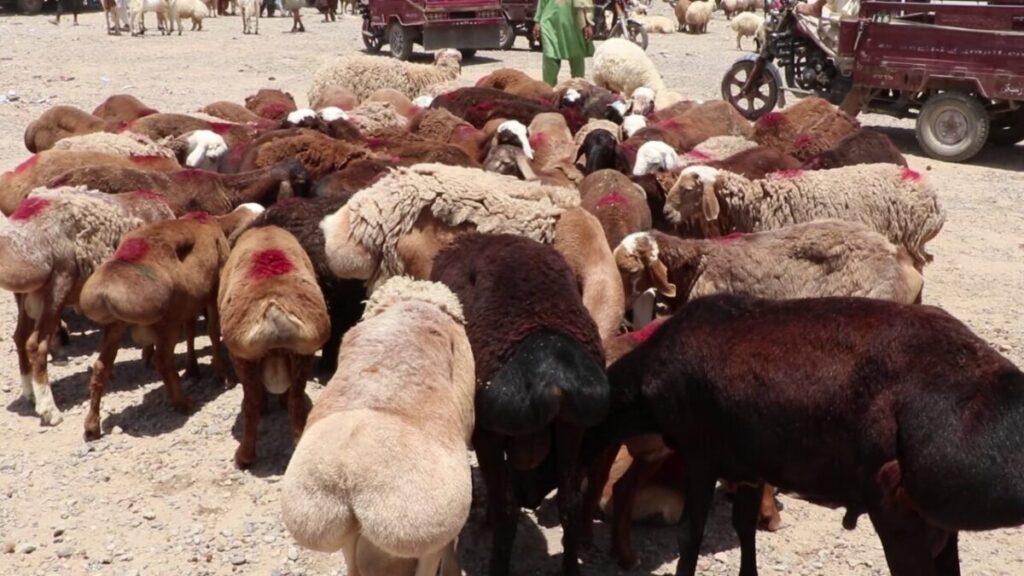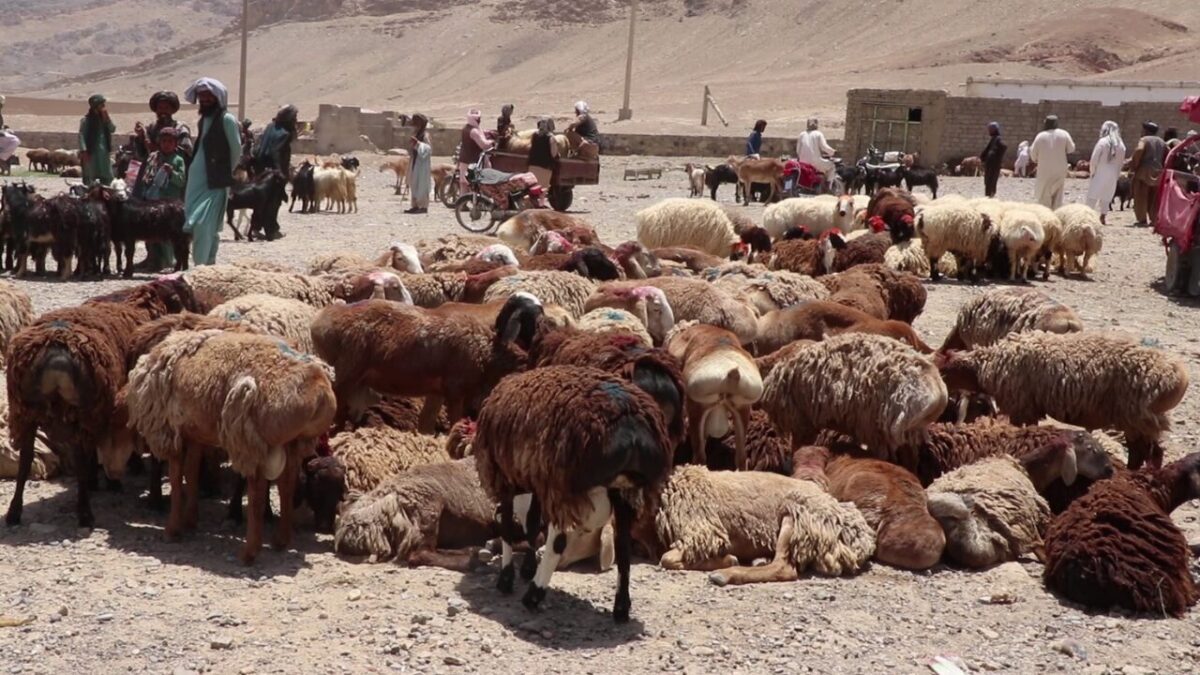KANDAHAR, Afghanistan — As the Taliban declared Eid on Monday, residents of Kandahar expressed frustration over long-term poverty, stating that they are unable to afford livestock for the traditional Eid al-Adha slaughtering rituals.
Despite a decrease in livestock prices compared to previous years, many people still find it impossible to make purchases. Residents noted that the economic hardships and pervasive poverty have dampened the festive spirit of Eid.
“Eid is not as joyful as it should be due to ongoing economic hardships and poverty in the country,” said one resident.
The United Nations has reported that nearly 24 million people in Afghanistan are in need of humanitarian assistance.

In Bagh-e Pul, a well-known livestock market area in Kandahar, hundreds of people gathered, yet business remained sluggish. Livestock sellers complained about the lack of sales despite significant price reductions.
“The markets dropped by 50 percent compared to before because the people don’t have money,” said Wazir Mohammad, a livestock seller.
Residents have called for strict monitoring of livestock prices. However, Sardar Mohammad, another seller, attributed the market collapse to the Taliban’s restrictions, including the ban on using Pakistani rupees.

“Since the Taliban has come and blocked the use of Pakistani rupees, all the markets are on the verge of collapse. We are in a dire situation,” he said.
Lack of employment and increased poverty are cited as major reasons for the decline in livestock sales.
“Our markets have significantly declined compared to last year. Last year, the markets were very good; people had more money and purchased more livestock,” said Allah Nazar, another seller.
According to residents, sheep prices range from 10,000 to 30,000 Afghanis, while cows can sell for up to 110,000 Afghanis.




